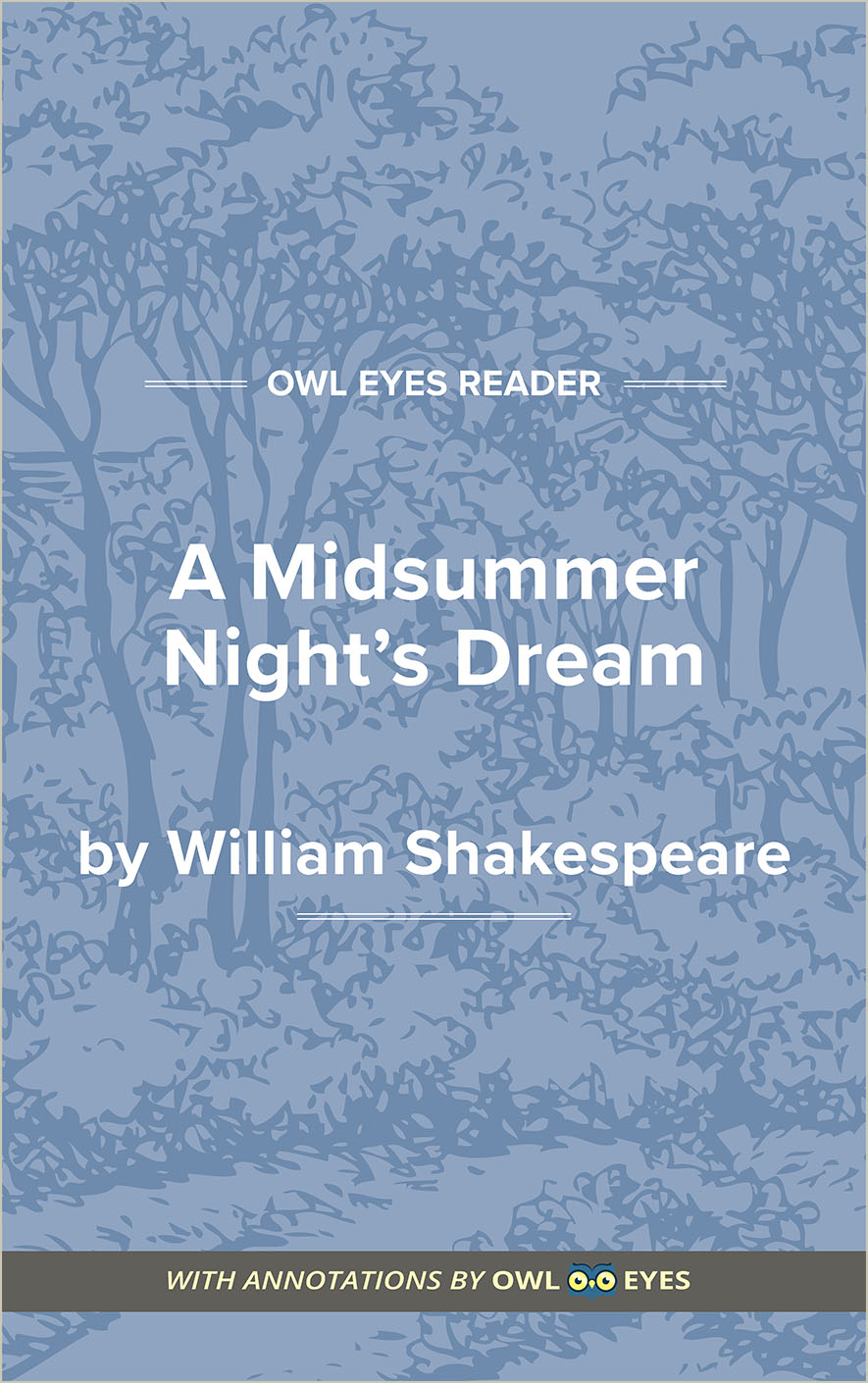Study Guide
Analysis Pages
Summary
Theseus, the duke of Athens, is to be married in four days to Hippolyta, queen of the Amazons, and he orders his master of the revels to prepare suitable entertainment for the nuptials. Other lovers of ancient Athens, however, are not so happy as their ruler. Hermia, in love with Lysander, is loved also by Demetrius, who has her father’s permission to marry her. When she refuses his suit, Demetrius takes his case to Theseus and demands that the law be invoked. Theseus upholds the father; by Athenian law, Hermia either must marry Demetrius, be placed in a nunnery, or be put to death. Hermia swears that she will enter a convent before she will consent to become Demetrius’s bride.
Faced with this awful choice, Lysander plots with Hermia to leave Athens. He will take her to the home of his aunt and there marry her. They are to meet the following night in a wood outside the city. Hermia confides the plan to her good friend, Helena. Demetrius had formerly been betrothed to Helena, and although he had switched his love to Hermia he is still desperately loved by the scorned Helena. Helena, willing to do anything to gain even a smile from Demetrius, tells him of his rival’s plan to elope with Hermia.
Unknown to any of the four young people, there are to be others in that same woods on the appointed night, midsummer eve. A group of Athenian laborers is to meet there to practice a play the members hope to present in honor of Theseus and Hippolyta’s wedding. The fairies also hold their midnight revels in the woods. Oberon, king of the fairies, desires for his page a little Indian foundling, but Oberon’s queen, Titania, has the boy. Loving him like a son, she refuses to give him up to her husband. To force Titania to do his bidding, Oberon orders his mischievous page, called Puck or Robin Goodfellow, to secure the juice of a purple flower once hit by Cupid’s dart. This juice, when placed in the eyes of anyone sleeping, causes that person to fall in love with the first creature seen on awakening. Oberon plans to drop some of the juice in Titania’s eyes and then refuse to lift the charm until she gives him the boy.
While Puck is on his errand, Demetrius and Helena enter the woods. Making himself invisible, Oberon hears Helena plead her love for Demetrius and hears the young man scorn and berate her. Demetrius has come to the woods to find the fleeing lovers, Lysander and Hermia, and Helena is following Demetrius. Oberon, pitying Helena, determines to aid her. When Puck returns with the juice, Oberon orders him to find the Athenian and place some of the juice in his eyes so that he will love the woman who dotes on him.
Puck does as he is ordered, while Oberon squeezes the juice of the flower into the eyes of Titania as she sleeps. Puck, coming upon Lysander and Hermia as they sleep in the woods, mistakes Lysander’s Athenian dress for that of Demetrius and pours the charmed juice into Lysander’s eyes. Lysander is awakened by Helena, who has been abandoned deep in the woods by Demetrius. The charm works, although not as intended; Lysander falls in love with Helena. That poor woman, thinking that he is mocking her with his ardent protestations of love, begs him to stop his teasing and return to the sleeping Hermia. Lysander, pursuing Helena, who is running away from him, leaves Hermia alone in the forest. When she awakens she fears that Lysander has been killed, since she believes that he would never have deserted her otherwise.
Titania, in the meantime, awakens to a strange sight. The laborers, practicing for their play, had paused not far from the sleeping fairy queen. Bottom, the comical but stupid weaver who is to play the leading role, becomes the butt of another of Puck’s jokes. The prankster claps an ass’s head over Bottom’s own foolish pate and leads the poor fool on a merry chase until the weaver is at the spot where Titania lays sleeping. Thus, when she awakens she looks at Bottom, still with the head of an ass....
(The entire page is 1,176 words.)
Owl Eyes subscribers get unlimited access to our expert annotations, analyses, and study guides on your favorite texts. Master the classics for less than $5/month!

